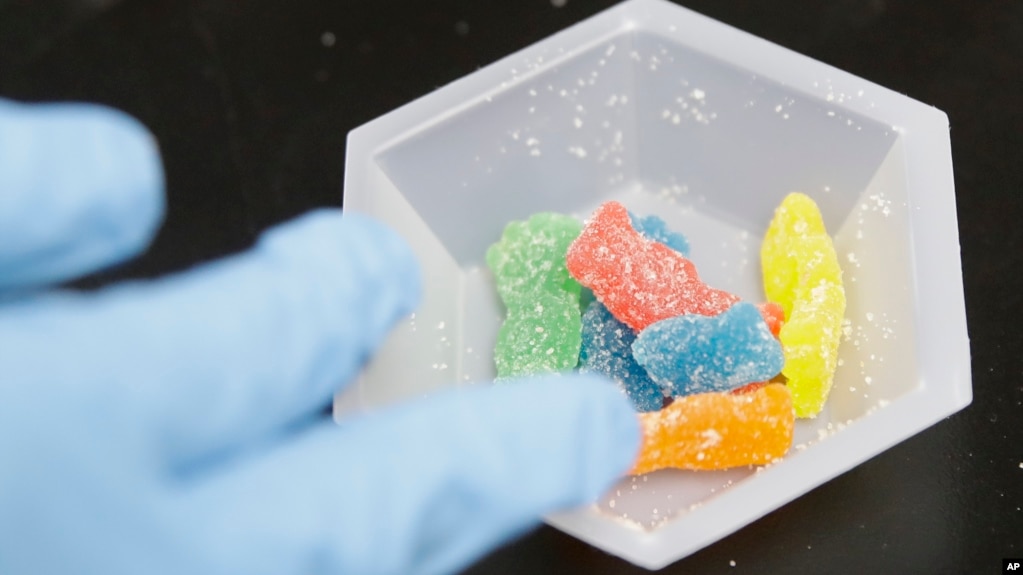More Children Mistakenly Eating Legal Marijuana Food Products

A study published recently found that the number of children who accidentally ate foods containing the drug marijuana increased over five years.
Many areas in the United States have voted to make the drug marijuana legal during that time period.
More than 7,000 confirmed cases of children younger than six years old eating foods made with marijuana were reported to the nation’s poison control centers between 2017 and 2021. Reported incidents increased from about 200 to more than 3,000 per year.
New research was published in a study in Pediatrics. The study found nearly one fourth of the children had to go to the hospital. Some became seriously ill.
Dr. Marit Tweet is a medical toxicologist, an expert on poisons, with the Southern Illinois School of Medicine. She led the study.
She said cases of children eating marijuana products, including sweets, are happening as more states permit medical and recreational marijuana use.

Candy bars marked with Colorado's new required diamond-shaped stamp noting that the product contains marijuana, are displayed in Denver on September 19, 2016. (AP Photo/David Zalubowski, File)
Tweet called for parents to be more careful. She also called for new laws to make marijuana products less appealing and less usable for children. Marijuana products often take the form of candies and foods. At least two states, Colorado and Washington, have such laws.
“When it’s in a candy form or cookies, people don’t think of it in the same way as household chemicals or other things a child could get into,” she said. “But people should really be thinking of it as a medication.”
Tweet and her co-researchers examined reports from the National Poison Data System. It includes 55 poison control centers across the country. More than half of the children affected were between the ages of two and three, the study showed. More than 90 percent got the marijuana food products, called edibles, at home.
“They’re the ones starting to explore and to get up and move around,” she said.
Of more than 7,000 reports, researchers were able to follow the outcomes of nearly 5,000 cases. They found that nearly 600 children, or about eight percent, were admitted to critical care services, most often with depressed breathing or even coma. Nearly 15 percent were admitted to non-critical care units and more than a third were seen in emergency rooms. Tiredness, breathing problems, fast heart rate, and vomiting were the most common symptoms.
Dr. Brian Shultz is an emergency doctor who works with children at Johns Hopkins Medicine in Baltimore. He said the results are not surprising. He formerly worked at Children’s National Hospital in Washington, D.C. In the nation’s capital, he and his coworkers treated children who had eaten marijuana edibles “almost on a daily basis,” he said.
Reports and hospitalizations increased during the last two years of the study, during the COVID-19 pandemic. More children were at home, with more chances to find marijuana edibles, Tweet said. With marijuana more widely legal, parents may have felt less stigma seeking help from poison centers and health care providers, she added.
Words in This Story
toxicology – n. the study of poisonous chemicals and drugs and how a person or other living thing reacts to them
recreational – adj. used for pleasure instead of for medical purposes
coma – n. a state in which a sick or injured person is unconscious for a long time
vomit – v. to have the food and liquid that is in your stomach come out through your mouth because you are sick
symptom – n. a change in the body or mind which indicates that a disease is present
stigma – n. a set of negative and often unfair beliefs that a society or group of people have about something
https://learningenglish.voanews.com/a/more-children-mistakenly-eating-legal-marijuana-food-products/6902949.html